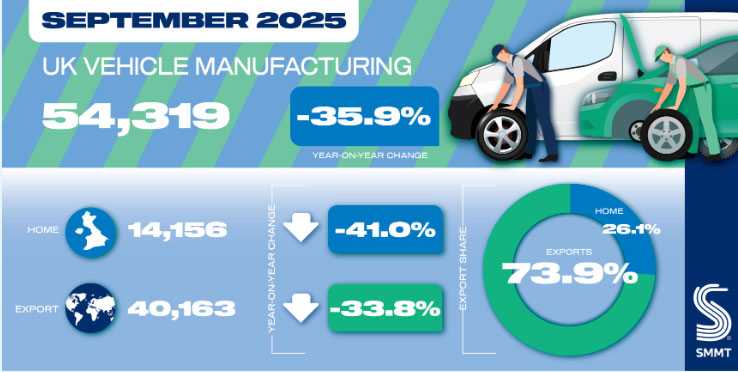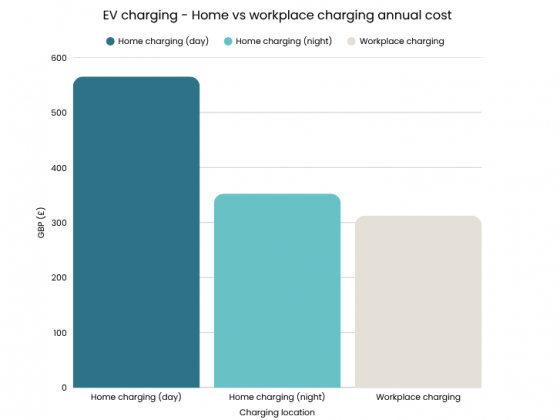Sept production falls; SMMT warns about plans to end ECOS

The latest figures from the Society of Motor Manufacturers and Traders (SMMT) report that UK car production fell 27.1% in September.
Almost half (47.8%) of cars made in the month were either battery electric, plug-in hybrid or hybrid, with volumes up 14.7% to 24,445 units.
The drop is attributed to a cyber attack which halted production at Jaguar Land Rover. Other UK manufacturers reported growth.
Overall car production for the UK market fell by -34.1% to 12,269 units while exports declined -24.5%. 38,821 cars were made for global markets – representing 76.0% of total output – with the EU, US, Turkey, Japan and South Korea the top five destinations.
Commercial vehicle production, meanwhile, declined for the sixth month in a row, by -77.9% to 3,229 units, driven by the consolidation of operations by a leading manufacturer. Combined car and van production, therefore, was down by -35.9% in September to 54,319 units.
The news comes ahead of the Budget on 26 November, with the SMMT warning of severe and lasting damage to jobs and the industry’s competitiveness if the Chancellor pushes ahead with plans to end critical Employee Car Ownership Schemes (ECOS).
New analysis by SMMT reveals that 60,000 automotive manufacturing workers could be affected, cutting the value of their remuneration and leaving them without personal transport. The impact will be especially severe for factory employees in regions lacking adequate public transport, making it more difficult to work flexible shift patterns and more challenging to recruit people into a sector already suffering a skills shortage.
Mike Hawes, SMMT Chief Executive, said:
“September’s performance comes as no surprise given the total loss of production at Britain’s biggest automotive employer following a cyber incident. While the situation has improved, the sector remains under immense pressure.
“The Industrial Strategy, launched by the Prime Minister, Business Secretary and Chancellor only in June, sought to align government policies towards growth and restore UK vehicle output to 1.3 million units per annum. The move to scrap ECOS immediately puts that ambition in doubt and must be reversed given the damage it will inflict on the sector and exchequer revenues.”



